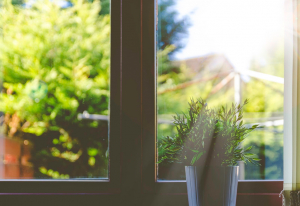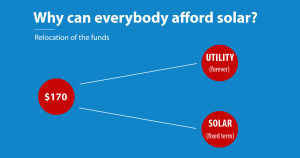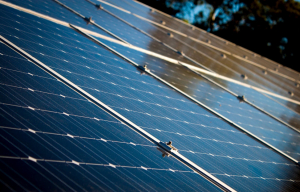Nobody likes those high power bills. Besides installing solar panels, we also have a few energy conservation techniques that will help you bring that bill even lower!
1. Energy-Efficient Bulbs
Energy-efficient light bulbs are a must for saving energy. Replace your old light bulbs with either light-emitting diode bulbs (LEDs), or compact fluorescent lights (CFLs) which use a whopping 80% less energy than traditional bulbs, and they last 25 times longer. While they are a bit more expensive, they will start saving you money immediately!
2. Thermostat
A smart and programmable thermostat is a must-have! Studies have shown that a thermostat can save you up to 12% on heating and cooling costs!!! Now if you do not have one, don’t worry, just set on all your AC units, plus your hot-water system by two to three degrees.
3. Washing Machine & The Dishwasher
Run the washing machine and the dishwasher only when it is full. Use cold water to wash clothes, since that will conserve power on heating the water. And get this… it will extend the life of your clothes! A lot of people are worried to wash their clothes on a cold setting because it won’t be as effective, but the detergents these days are made for those settings, so try it out, and see if your bill went down!
4. Old HVAC
AC units last a long time, but even if your air conditioner is only 10 years old, you may save 20-40 percent of your cooling energy costs by replacing it with a newer, more efficient model. It is also important to change your filters on at least a monthly basis. If you don’t, and the filter is dirty, the ac will have to do some extra work to push the air through it, which automatically will increase energy use.
5. New Windows
Thin old windows can let a huge amount of heat escape or get into the house. Consider buying high-performance windows or getting double glazing ones. If that’s a step that’s a few months’ worths of savings away, make sure there are no leaks around them.
6. Energy Efficient Appliances
When buying any new home appliances make sure to review these energy conservation techniques & tips. They might be a bit more expensive except for Energy Star, but the savings that come with it are more than the price difference. We promise you will not regret the higher price!
If you haven’t gotten your solar estimate yet don’t hesitate to contact Dallas Solar Company Solartime USA today. We are here to educate you so you can make the right decision for you and your family.
Learn more about the benefits solar panels bring with our solar panels 101 guide.








